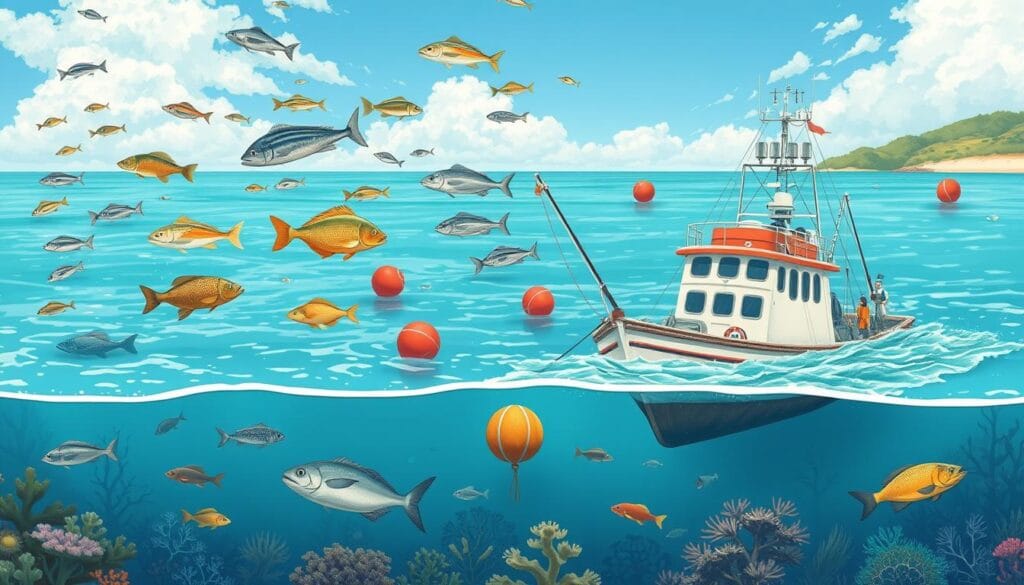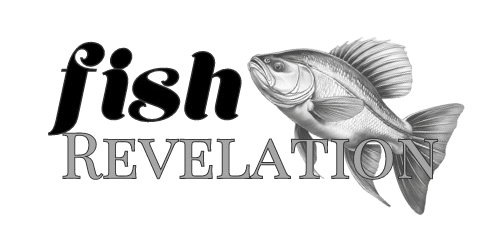Overfishing, the practice of catching fish faster than they can reproduce, is a growing concern that affects marine ecosystems worldwide. While fishing is essential for food and economic activity, unsustainable practices have led to alarming consequences for ocean health and biodiversity. Here, we explore the major ways overfishing impacts marine ecosystems, the underlying causes of this crisis, and why immediate action is necessary.
1. Decline in Fish Populations
Overfishing significantly reduces fish populations, depleting species such as tuna, cod, and swordfish. When fish are caught faster than they can reproduce, their numbers dwindle, making it harder for these species to recover. This decline not only affects the species themselves but also disrupts the entire food chain.
In many regions, the rapid depletion of fish stocks has led to the collapse of entire fisheries. For example, the Atlantic cod fishery off Canada’s eastern coast was once one of the most productive in the world but collapsed in the early 1990s due to overfishing. Despite decades of restricted fishing, the cod population has struggled to recover, illustrating the long-term consequences of unsustainable fishing practices.
Food and Agriculture Organization (FAO) – The State of World Fisheries and Aquaculture
2. Disruption of Food Chains
Marine ecosystems are complex webs of interconnected species. Overfishing removes key species from these systems, which can trigger cascading effects. For instance, if a predator species like sharks or tuna is overfished, their prey may overpopulate, leading to imbalances in the ecosystem. Conversely, overfishing herbivorous fish, like parrotfish, can lead to unchecked algae growth, harming coral reefs.
The ripple effects of these disruptions are profound. Overpopulation of certain species can lead to the overgrazing of vital habitats, such as seagrass meadows, which serve as nurseries for many marine organisms. On the other hand, the absence of predator species can make ecosystems more vulnerable to invasive species, further destabilizing the balance.
National Oceanic and Atmospheric Administration (NOAA) – Marine Food Webs
3. Impact on Coral Reefs
Healthy coral reefs rely on a balanced marine environment. Overfishing of herbivorous fish allows algae to dominate, smothering corals and preventing new coral growth. Additionally, fishing practices like trawling and dynamite fishing physically damage reef structures, further endangering these vital habitats.
Coral reefs are not only biodiversity hotspots but also critical to human economies. They support fisheries, protect coastlines from erosion, and attract millions of tourists annually. The loss of coral reefs due to overfishing exacerbates the economic and environmental challenges faced by coastal communities.
4. Bycatch and Non-Target Species
Bycatch—the unintentional capture of non-target species—is another critical issue linked to overfishing. Sea turtles, dolphins, and seabirds often get caught in fishing gear and are injured or killed as a result. Bycatch not only threatens these species but also disrupts the broader ecosystem.
Certain fishing methods, like trawling and longlining, are particularly destructive. Trawling involves dragging large nets along the seafloor, capturing everything in their path, including non-target species and juvenile fish. Longline fishing, which uses lines with thousands of baited hooks, often results in significant bycatch of endangered species such as sea turtles and sharks.
5. Economic and Social Consequences

Overfishing also has significant socioeconomic impacts. Coastal communities that rely on fishing for their livelihoods face declining incomes as fish stocks dwindle. Furthermore, the global fishing industry may struggle to meet demand, leading to higher prices and food insecurity for millions of people who depend on fish as a primary protein source.
Small-scale fisheries are particularly vulnerable. These communities often lack the resources to compete with industrial fishing operations, which can deplete local fish stocks. The resulting economic hardship forces many to seek alternative livelihoods, further straining already limited resources in developing regions.
6. Loss of Biodiversity
Biodiversity is essential for resilient marine ecosystems. Overfishing reduces the variety of species in the ocean, making ecosystems less adaptable to changes such as climate change or pollution. A loss of biodiversity can result in ecosystems that are less productive and more prone to collapse.
The loss of apex predators, such as sharks, has far-reaching implications. Sharks play a critical role in maintaining the health of marine ecosystems by regulating the populations of prey species. Their decline can lead to overpopulation of smaller predators and herbivores, which in turn affects the health of coral reefs, seagrasses, and other habitats.
7. Environmental Consequences of Destructive Fishing Methods
Certain fishing practices contribute directly to environmental degradation. Bottom trawling, for instance, involves dragging heavy nets across the seafloor, destroying habitats such as coral reefs and sponge beds. Similarly, cyanide and dynamite fishing, used in some regions to capture fish for the aquarium trade or food, devastate marine environments.
The physical destruction caused by these methods not only reduces the productivity of ecosystems but also releases stored carbon from marine sediments, contributing to climate change. The environmental footprint of overfishing extends far beyond the immediate depletion of fish stocks.
Solutions to Combat Overfishing
Addressing overfishing requires coordinated efforts on local, national, and global levels. Some effective measures include:
- Implementing Sustainable Fishing Practices: Adopting quotas and seasonal restrictions can help regulate the amount and timing of fish caught, allowing populations to recover.
- Establishing Marine Protected Areas (MPAs): Creating zones where fishing is restricted or prohibited allows ecosystems to regenerate and thrive.
- Enforcing Stronger Regulations: Governments must ensure compliance with fishing laws and crack down on illegal fishing practices.
- Promoting Consumer Awareness: Educating consumers about sustainable seafood choices can drive demand for responsibly sourced products.
- Investing in Aquaculture: Sustainable fish farming can reduce pressure on wild fish stocks while meeting global demand.
- Developing Advanced Fishing Technologies: Innovations such as selective fishing gear and bycatch reduction devices can minimize the environmental impact of fishing.
The Call to Action
The impacts of overfishing are far-reaching, threatening marine ecosystems, global food security, and the livelihoods of millions. However, through sustainable practices and international cooperation, it is possible to reverse these effects and restore balance to the oceans. Scientists, policymakers, industry leaders, and consumers all have a role to play in safeguarding marine biodiversity.
As stewards of the planet, we must act now to protect marine ecosystems. Supporting sustainable seafood, advocating for stronger regulations, and spreading awareness are crucial steps toward a healthier, more sustainable future for our oceans. Together, we can ensure that the oceans remain a source of life and prosperity for generations to come.
FAQ
What is overfishing, and why is it a problem?
Overfishing means catching fish faster than they can reproduce. This hurts marine ecosystems. It disrupts ocean life and threatens fishing industries.
What are the main causes of overfishing?
Overfishing is mainly caused by better fishing technology and big commercial fishing. Also, people want more seafood. These changes let us catch more fish than the oceans can replace.
What are the environmental consequences of overfishing?
Overfishing harms marine ecosystems a lot. It depletes fish populations and messes up food chains. It also damages habitats, leading to less biodiversity and ocean health decline.
How does overfishing impact coastal communities?
Overfishing hurts coastal communities a lot. It leads to job losses and economic troubles. It also erodes cultural heritage, affecting these communities deeply.
What are some sustainable fishing methods and practices?
Sustainable fishing uses selective gear and catch limits. It also protects habitats. Practices like managing fisheries and creating marine protected areas help too.
How can consumers contribute to preventing overfishing?
Consumers can help by choosing sustainable seafood. They should understand seafood labels and support local fisheries. This drives demand for sustainable fishing.
What are some of the technological solutions being used to address overfishing?
New tech like satellite monitoring and smart nets helps track fishing. It reduces bycatch and improves fishery management. These tools make fishing more sustainable.

